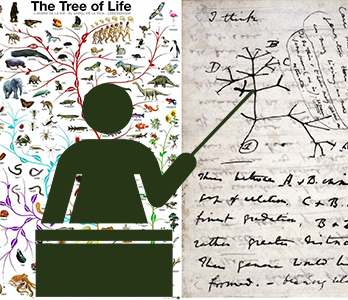Evolution combines the important steps of biology with big conceptual ideas in scientific areas beyond Genetics such as Paleontology, Ecology, and Natural Philosophy. This course explores the basic concepts of evolutionary biology, how the mechanisms of evolution combine to produce biodiversity in life, and evolution as a complex phenomenon that takes place over both short and long timescales, starting with the philosophy of science of evolution, then moving on to fossils, phylogenetic analysis and the study of the evolutionary history of life, genotypes and phenotypes, the molecular mechanisms that enable long-term changes, natural selection, adaptations, microevolution, macroevolution and behavioral genetics and closes with human evolution and the applications of evolutionary biology in medicine.



